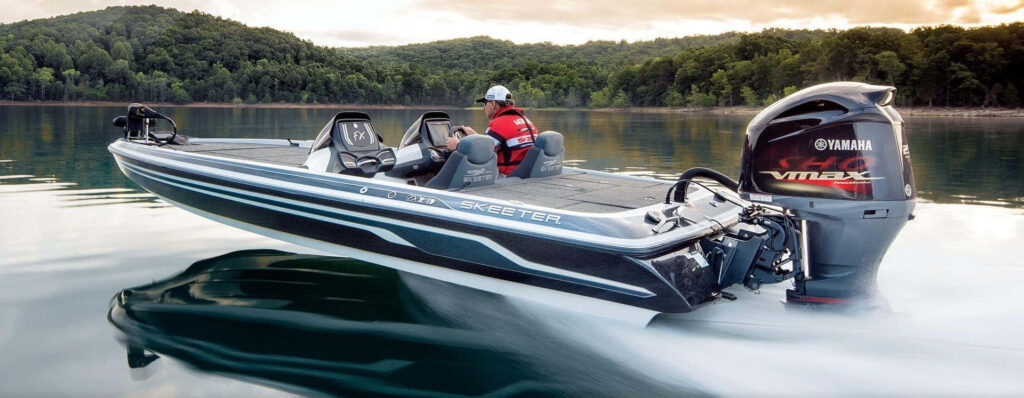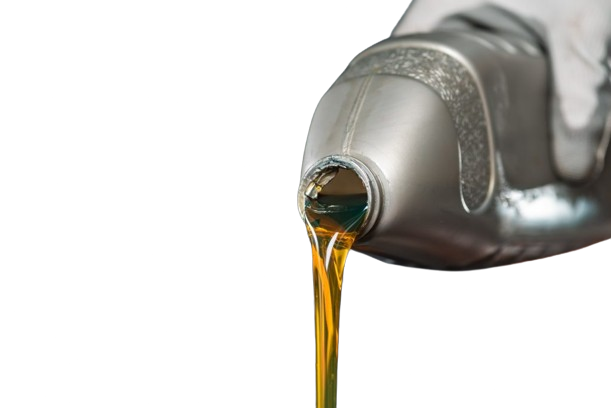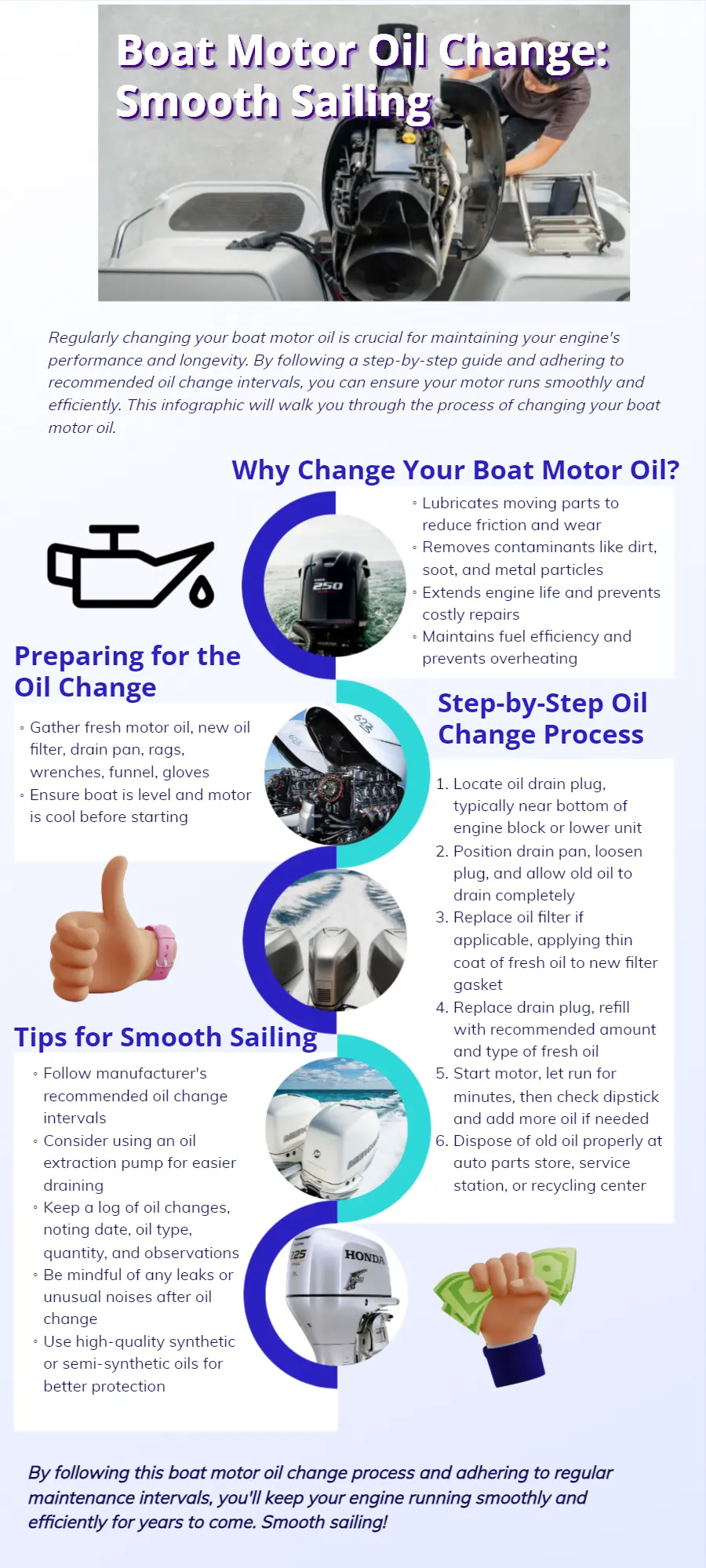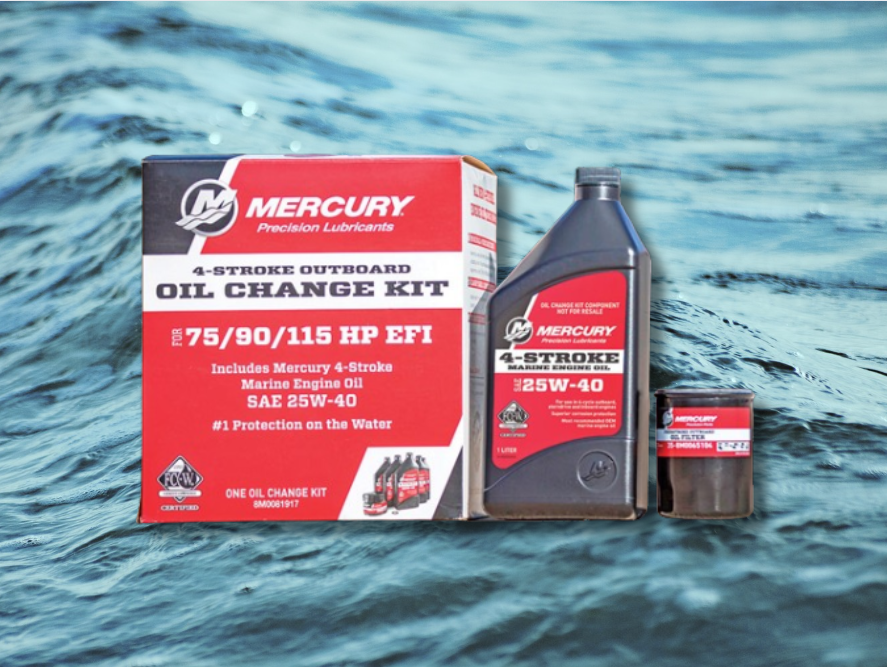Quick Answers to Boat Motor Oil Change Basics
Changing your Boat Motor Oil is vital for marine engine owners aiming to maintain engine life and peak performance under extreme conditions. How often should you change it? What oil works best for four-stroke marine engines? This guide answers these questions, offering a step-by-step process to ensure your boat engine thrives, whether it’s a two-stroke or four-stroke outboard engine facing demanding environments.
[BUTTON: Find Boat Motor Oil Change Services Near You]
Explore Boat Service Florida.
Why Is Changing Boat Motor Oil Important?
Key Benefits for Engine Health
Why bother with regular Boat Motor Oil changes? Here’s the breakdown:
Preventing Overheating: Superior protection against heat keeps four-stroke engines and marine motor oils stable under heavy loads.
Mercury Precision Lubricants or Valvoline blends with a concentration marine additive package ensure excellent shear stability—vital for your water adventures.
Lubricating Moving Parts: Marine engine oils reduce friction on internal engine components, ensuring superior lubrication.
Removing Contaminants: Oil clears carbon build-up, varnish deposits, and metal particle presence, preventing corrosion protection issues.
Extending Engine Lifespan: Fresh oil with synthetic additives offers maximum protection, avoiding excessive wear in marine operating conditions.
Boosting Fuel Economy: Clean oil enhances fuel mileage, critical for marine diesel engines and gasoline engines alike.
Best Outboard Prices: Navigating the Boat Motor Market
Winterize Outboard Motor: Safeguarding Your Aquatic Ally

What Do I Need for a Boat Motor Oil Change?
Essential Tools and Materials
Ready to tackle a Boat Motor Oil change? Gather these:
- Fresh Marine Engine Oil: Check your engine manufacturer for viscosity stability (e.g., 10W-30 Mineral 4-Stroke Marine Engine Oil or 15W-40 Heavy Duty Diesel Engine Oil).
- Oil Filter: Replace it for optimal time performance—stock options at Marine Parts in Florida.
- Drain Pan: Larger than your oil levels capacity.
- Rags: For spills from constant shear or oil-injected two-stroke applications.
- Wrenches: Sized for automotive engines or diesel particulate filters if needed.
- Funnel: Ensures clean pours for maximum output.
- Gloves: Protects during periods of storage time.
Ensure your boat is level and cool—salt water exposure demands consistent protection.

How Do I Change Boat Motor Oil Step-by-Step?
Detailed Process for Marine Engines
Here’s how to change your Boat Motor Oil:
- Locate the Drain Plug: Use your manual—engine manufacturer specs vary for four-stroke outboard engines or marine diesel engines.
- Drain Old Oil: Place the pan under the plug, loosen it, and drain—watch for metal contact signs over periods of time.
- Replace Oil Filter: Unscrew the old filter (e.g., conventional air filter), coat the new one’s gasket with oil for excellent protection, and install—ideal for highly stressful moisture-rich environments.
- Refill with Fresh Oil: Secure the plug, then add a base stock blend via funnel—check FC-W certification for marine applications.
- Check Oil Levels: Run the engine briefly, then verify with the dipstick—top off for outstanding lubricity and corrosion protection properties.
- Dispose Properly: Recycle old oil at centers to avoid formation of sludge—never dump in marine conditions.
Need help? Contact a Marine Engine Repair Service.
Pro Tips for Success
An oil extraction pump speeds up the process under harsher conditions—available at Boat Parts Accessories.
Use synthetic additive packages for maximum performance—think Mercury Marine or Sierra oils for internal components.

Common Boat Motor Oil Change Questions
Answers to Frequent Queries
- How Often?: Follow engine manufacturer intervals—typically 100 hours or annually for complete engine maintenance, ensuring warranty protection.
- Synthetic vs. Regular Motor Oil?: Synthetic additives offer stronger wear protection and reduction in emissions—great for marine environment durability.
- Can I Use Automotive Engine Oils?: Avoid them—marine engine blends handle cylinder temperatures and constant loads better than auto engines’ oil.
- Signs of Trouble?: Dark oil or carbon deposits signal an issue—check with a Boat Mechanic Florida.
Boat Motor Brands: Revving Up Your Boating Experience
Conclusion
Mastering your Boat Motor Oil change keeps automotive gear oil woes at bay, ensuring four-stroke marine engines and two-stroke engines deliver peak performance. With the right marine engine oils, anti-wear additives, and a focus on excellent shear stability, you’ll enjoy a cleaner boating experience. Trust Marine Engine Rebuilders Florida for expert support and stock-order precision.
[BUTTON: Hire a Boat Motor Oil Expert]
Visit Boat Maintenance Miami.

